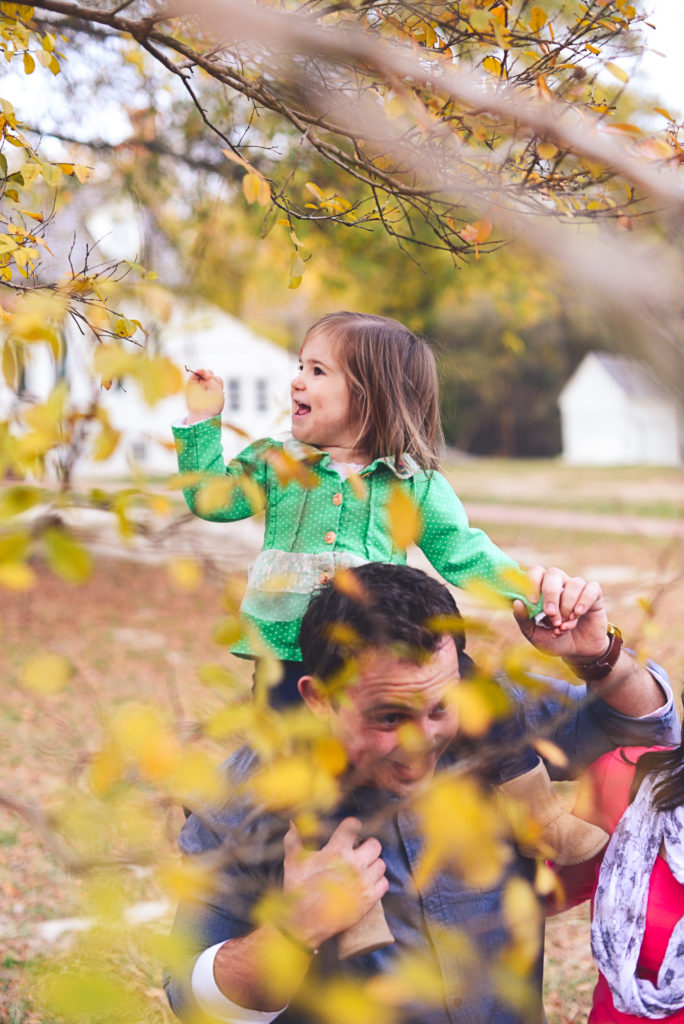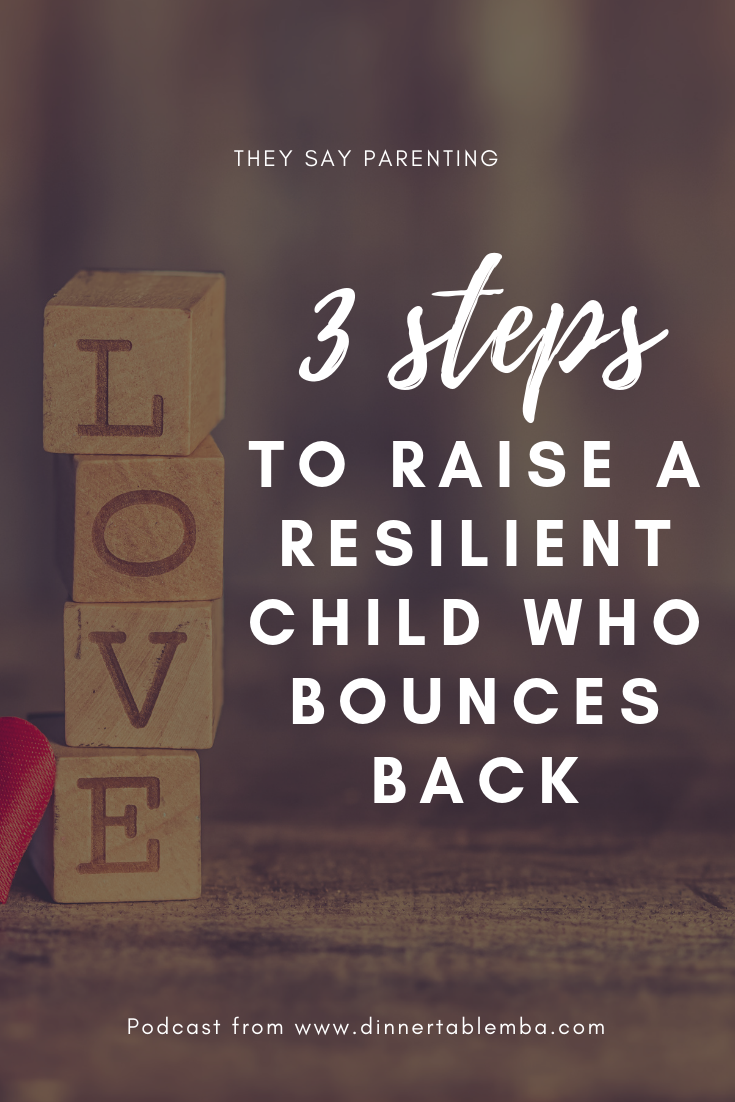Snowplow Parenting: What You Need to Know
(Posted on Thursday, March 28, 2019)

You may have heard of the term, “helicopter parent.” In the wake of the college admission scandal, a term you might not know, “snowplow parenting,” is reemerging in the headlines. This parenting style, which revolves around removing obstacles from a child’s path can actually be harmful.
If you missed this amazing segment on the Today Show, Snowplow parenting: why it’s good to let your kids fail, family counselor, Dr. Argie Allen Wilson, talks about how letting our kids fail isn’t a bad thing. In fact, it can be quite beneficial for our children.
What do you need to know about snowplow parenting?
What is Snowplow Parenting?
Dr. Argie Allen Wilson defines it on the Today Show as “moving everything out the way, all obstacles so that your children don’t even know they have a problem.” “They think there is a smooth path to life, which is unrealistic.”
Allowing Our Kids to Fail
Dr. Wilson continues with, “they’ve gotta be able to have the coping skills and the problem-solving skills to deal with any situation. We’ve gotta let them fail.”
Not allowing our kids to fail is detrimental to their ability to be resilient. Children need to know that it’s okay to fail. It leads to growth, and also, through failure they learn the art of bouncing back.
My daughter really put this into perspective for me a couple of months ago. Here’s how:
I have recently come to the conclusion that my six-year-old daughter is a perfectionist. I noticed that she did not want to fail in any area and would avoid failing at all costs… even if this meant giving up.
I first noticed when she tried to ride a bike. She found it hard, so she simply didn’t want to do it. Then, again, when she was trying to learn how to tie her shoes. She would fail at tying the shoe and then she would put the shoe down and whine that she didn’t want to do it anymore. I could tell it made her upset and frustrated to say the least.
One day, it became clear to me that it wasn’t that she couldn’t learn to tie the shoe… it was that she hated failing at it. So, we had a talk about failure.
I told her “failing at something isn’t a bad thing.” I said, “in fact, I think it is GOOD when you fail.”
She looked at me like she was super confused.
I explained that if we never fail, how would we ever grow and learn new things? I told her every time we fail at something, continue trying, and master it, we have grown as a person.
She loves art, so I gave her this example: “Imagine if you really wanted to draw a circle and you couldn’t seem to get it right, so you just decided never to draw again. What would happen then? You wouldn’t have all the joy you get out of coloring and drawing anymore. And, you never would have learned to draw a unicorn like you love to draw so much.
This seemed to make sense to her and she was willing to try again. Through recognizing that it was okay to fail, she decided not to give up.
“Failing Forward”
Dr. Wilson calls it “failing forward.” In the clip she says, “When we fail, that gives us fuel in order to be motivated for not IF, but WHEN the next curveball comes… And so when you’re failing at something, that’s going to give you that motivation, that movement, to go forward for the next thing that happens.”
Think about it, there are going to be times when our children will face disappointment in life, when they will fail. Rather than giving up, we want our children to be motivated to figure out how to make a change or move forward. By allowing them to fail and then encouraging them to problem solve, they will be better able to do just this.
You may wonder, well, won’t my child be more upset if I let them fail?
I bet the benefits of failing and learning will far outway any current disappointment.
In fact, after allowing my daughter to fail at tying her shoes and reminding her that it was okay to fail, I was shocked that the very next day she came home and told me she tied a shoe for her friend. She then grabbed a shoe and tied it right in front of my eyes.
Whats more? The, next night, as I was giving the baby her bath, my daughter said, “Mom, I failed so much today that I bet I’m getting really tall.”
Okay, so maybe I didn’t explain what growth meant as well as I should have! Ha! But, I think she got the point… and failing no longer seemed to make her feel bad. It seemed to encourage her to keep trying until she was able to figure it out.
“Launching”
Dr. Argie Allen Wilson also talks about preparing our children for adulthood. She talks about guiding our children, but warns against doing everything for them.
“It’s called launching… so you’re preparing your children to launch them into adulthood… so gradually, yes, you want to help direct them and guide them, but you don’t want to do everything for them.”
On Toddlers: Building Problem Solving Skills
It is never too early to teach our children problem solving skills. When asked about toddlers, Dr. Wilson shares, “If they are asking you to help them solve a problem, ask them, ‘well what do you think?’ Give them some options. Help them to figure it out for themselves so they begin at a young age to develop their problem solving skills.”
We recently participated in a podcast from Dinner Table MBA which is full of more information on building resilience and coping skills in our children and on allowing them to fail. Check out our blog post here: 3 Steps to Raise a Resilient Child Who Bounces Back.
I’ll leave you with, as Dr. Wilson states, “listen, one setback is just a set up for a comeback.”
Imagine if our children learned and believed this, how much easier it would be for them to comeback instead of giving up. And, we can start teaching this important concept now!

Photo Credit: Lindsey Martin Photography
To learn more about me and my blog, check out: About Lauren
You may also enjoy: 10 Reasons Why Parents and Zookeepers Are Alike
3 Steps to Raise a Resilient Child Who Bounces Back
(Posted on Thursday, December 20, 2018)

I am thrilled to be featured in a podcast from Dinner Table MBA. The podcast focuses on how to raise a resilient child who can bounce back.
Resilience is not something we are simply born with. It is something that is learned. On the podcast, I talk about three ways we can help build resilience in our children. I will summarize these three ideas here.
You can listen to the full podcast, including commentary from Dinner Table MBA, at any of these links:
Link to Dinner Table MBA’s Full Blog Post
Positive Thinking
First, we can open up our children’s minds to positive thinking and we can provide opportunities for them to practice.
When we feel like we are failing at something it is so easy to give up, to be sad, or to believe that we can’t do it. Instead, we can encourage our children to be positive, to let the situation motivate us to choose a different route, and to keep trying.
Through Failure We Grow
We must realize that our children will fail in their lifetimes— plenty of times— even if we try so hard to protect them. When this happens, we can remind them that failure is not all bad. Through failure, we learn. Together with our children, we can talk through a failure and try to find what they may have gained from the situation. There is always something to gain, even if it is simply learning what to do differently the next time.
It is always okay for them to feel sad or to feel emotion when they fail. It is important to process that emotion with them, to allow them to feel it, but then, we can learn.
Coping Skills
Lastly, we want to teach our kids the skills to cope. Tough experiences in life, like loss or grief—a friend moving away, or a death, for example—can also teach resilience when we find ways to cope and move forward. In order to cope or find peace in a difficult situation, we must have coping skills.
Here are some examples of coping skills we can teach:
- Using their words to describe feelings
- Using art to describe their feelings: They can draw a picture which describes how they feel. For older children, you can draw a big circle. Your child can make a pie chart by color-coding their current emotions inside. You can then talk about the emotions they include.
- Talking to someone they trust when they feel bad
- Deep breathing—they can close their eyes and focus on their breaths
- Counting to ten, even backwards if they are a bit older
- Squeezing a stress ball
- Turning negative thoughts into positive thoughts, so instead of saying to themselves, “I will never get through this” they can practice saying, “I will feel better. It will just take time.”
- Participating in something they enjoy
Even adults are still learning about resilience. Sometimes as parents, we can feel we are making mistakes. We can see our mistakes as failures. We can see failure as something bad. Building resilience can be a life-long process, so it’s never to early to start.
Remember, coping does not mean pushing something aside and ignoring it. It means dealing with our feelings in healthy ways and then finding peace or a way to move forward.
Dinner Table MBA is a wonderful resource for parents and children. They inspire parents to have meaningful conversations with their children about important life lessons around the dinner table. These lessons can impact the future of our children in a positive way. Be sure to check them out on their blog, or over on Instagram and Facebook.
To learn more about me and my blog check out: About Lauren
If you enjoyed this post, you may also enjoy: Sometimes Strength Requires a Break or What Does It Mean to Be a Parent